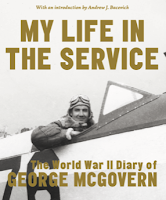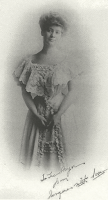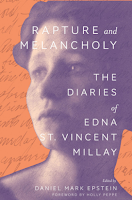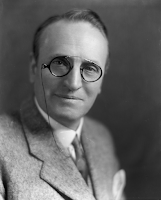Four decades ago I took part in a Brighton festival workshop on the famous novel Brighton Rock. It was an interesting experience, if a little disappointing. The workshop included entry to a short story competition with a £50 prize, and I duly entered. Exactly forty years ago today, I received notification that I’d won the competition and the £50 - it remains the only literary prize I’ve ever won. But, at the time, I was convinced - as my diary reveals - that I had been the only entrant. Many years later, after that particular diary entry had been published in my book Brighton in Diaries, one of the organisers of the competition emailed me to confirm that I had NOT been the only entrant - so I put that into my diary too. Here is the story of that prize - in three extracts from my diary
4 May 1992‘Friday saw the opening of the Brighton festival with a splendid procession of children and their school-made dragons. For the whole of Saturday, I’d signed up for a Brighton Rock workshop but I had little idea what it would be like. I dutifully arrived on the Palace Pier a little before 10 and took a couple of pictures - the light was astonishingly bright and clear and the pier furbishings were looking as spanking new and clean as I’ve seen them; they must have had a coat of paint within the last few weeks and the glass in the windows had been spotlessly cleaned. The photos were similar to those I took ten years ago.
At 10 exactly, I approached the tiny group of people in the centre of the pavement at the entrance to the pier. The literature event organiser was there holding a wad of tickets; there was a large well-built man of around 50 introduced to me as Tony Masters who I didn’t know from Adam; otherwise there were two other punters like me - Jake, a dead ringer in character and pretensions for my old flatmate Andy, and Bob. Masters, who turned out to be quite a well known and prolific writer, never really recovered from the fact that so few people had signed up. I don’t know how many he was expecting - originally they had planned on a dozen or so but then thought a group of 4-6 would be better - but the organiser had twenty tickets or more.
We removed to a banquet suite in the Albion Hotel where Tony talked a while about his working methods, about Brighton Rock (he had known Graham Greene) and about what we were going to do during the day - i.e. a walk in the morning and writing session in the afternoon. It turned out that Bob had never read the book Brighton Rock (he hadn’t even made an effort - I’ve been devouring it in the last few days, even though I read it a year ago) and had never penned a word of fiction in his life; while Jake who found it almost impossible to stop talking, never strayed from his favourite subject of films. However deprecatingly I might talk about these characters, there is no doubt in my mind that they added as much if not more to the day than I did.
I suppose I too was disappointed that the turnout was so small and that I was down on the level of an unemployed fantasist student and a computer programmer giving air to a slight whim. The walk was certainly a disappointment - we walked up and down the pier, passed the Forte’s cafe on the corner directly opposite the pier which was the setting for Snow’s. Tony insisted it would have been more sleazy in the time Greene researched the book but I thought otherwise - Rose says she couldn’t get another job as good and I suspect it was quite posh then, even more so than now. Tony said the same thing about the pier and the Albion hotel (where Greene stayed when in Brighton) but again I would have thought the pier would have been quite rich in those days given the amount of visitors it used to get. Our resident writer seemed determined to impose the sense of sleaze and squalidness that exudes out of the whole book on all the locations. We then walked up to Nelson Place which is where Pinkie grew up and where Rose’s parents live. Tony seemed to insist he could really feel “a sense of place” (the title of the workshop) in this location but I didn’t get anything from it all.
For a while we sat in the pub Dr Brighton’s which in the book and formerly was the Star and Garter where Ida was often found. I suppose I knew Brighton too well already. There are dozens of locations around the city which have real character and feeling but, the pier apart, we didn’t go near any of them. After a short break for lunch we retired to the same room in the hotel. It became clear that Tony has a lot of experience of such workshops - he has worked a lot in schools it seems and written a lot for children - and was determined to maintain a highly positive attitude and wring something out of us. We had five minutes to write down the bone of an idea based on any inspiration we had had on the walk; then we were given a bit less than an hour to actually write up the idea.
Apart from general thoughts about the gaudiness of the attractions on the pier and the similarity perhaps with Brighton itself in some respects, three pictures on the pier had struck me: the sight of a lanky youth, standing silent and motionless staring at a video machine; a small boy who refused to walk over the slats of the pier because he could see water below and chose instead to walk along the boards laid down for pushchairs; and the colour of the sea - a translucent turquoise which seemed to have a light source of its own - as spotted between the slats when walking through a covered part of the pier.
Pressed into creating a story line and taking my cue from a simple example put forward by Tony himself, I turned the youth into a rather lonely character yet to leave home, addicted to the video machines, his only pleasure, and on the edge of making an important decision in his life. I have him watching the small boy choose the safe path over the boards and seeing himself. A group of lively youngsters enter the amusement arcade and stand near the youth. He starts thinking about how he has never met people like this and so on. I was surprised how much I actually wrote in the short space of time but I suppose that’s my experience as a journalist showing through. Although Tony insisted that one should enclose one’s characters into a finished plot and allow them room, I had sewn up my plot before I began writing. Tony said all one needs is to be able to see four or five scenes ahead (have a narrative thrust) and then one can write. Well, I couldn’t do this, I had already found the end to my story viz: the group of lively youngsters tease the youth and eventually nag him to come along with them for a bit. The first thing they do is go up the helter skelter. The youth, tied up in the imaginary world of the video games, has never actually been on any of the fairground rides and he is frightened sick of going to the top of the helter skelter and sliding down round virtually over the sea. Moreover, he has to spend his last coin of the day. The story finishes as he begins his slide down - a symbol really that he must begin his real life.
Pretty crass eh! Well, what can one do in 45 minutes. Jake wrote three sentences in Tom Wolfe style about a film star (Cher-like) who has come to Brighton to film a few scenes but falls over on the pier and is going to have an affair with a young street-wise lad. Bob also wrote just a few words about a tailor’s shop he’d seen. They were highly descriptive and emotive even and promised well.
We talked for an hour or so about these attempts. Jake found my writing Kafkaesque, Bob liked it and Tony explained that I wrote rather economically without much description, that I didn’t waste words. He said whereas from Bob’s contribution he could touch the scene, with mine he got a strong visual sense. I don’t think he made any judgement as to whether it was any good or not, nor can I think of anything he said that might actually help me write the story better. Oh yes, he said I was very observant.
The cost of the workshop also includes the chance to send in a story (max 3,000 words) to the organisers who will then award a £50 price as well as provide some constructive criticism. I shall certainly take advantage of that offer. If just three people turn up at the second of the two workshops and every participant sends in a story, I would still have a 15% chance of winning the prize!
I have to say that I liked Tony and found myself very much on his wavelength - I could tell in advance what pictures he might point out (at one point he was saying that one was unlikely to meet a Pinkie character these days but just at that moment two punks passed us in the street and we both acknowledged the irony of that) - and I could agree with much of what he said about other writers and films. At over 50, he has been a writer for thirty years he said, and is clearly much in demand, for films and television, and also pushes out a lot of books. I suppose if I were ever to be a writer, I would want to have as varied a portfolio as this man.’
5 August 1992
‘ “I am delighted,” Adrian Slack, organiser of the literature part of the Brighton Festival, writes, “to inform you that you have won first prize in the short story competition. I enclose a cheque for £50”. Well, well, well. My first ever literature success. Well, it would be if I wasn’t reasonably sure that I was probably the only entrant. Shame I didn’t get second and third prize as well. The story - Helter Skelter - was supposed to be read by several judges and a critique provided, that might have been more useful than the £50 prize.’
3 January 2014
‘Here we are three days into the new year. I’ve just received this message: “Hello Paul, Thoroughly enjoyed Brighton in Diaries and feel it was a brilliant idea well-executed. That was my opinion long before reaching Chapter 26. Loved your memory of Woodvale 1977 and then Brighton Festival Events! I’ve not thought of the Brighton Rock writing workshop & competition in many years and laughed at/with your snapshot of Tony’s disappointment. Adrian had hired me to show Tony around the landscape of the novel, but from your comments re Snow’s location, etc. it seems Tony did not take on my ideas. I disagree with everyone who tries to lather Brighton solely with the sleaze and squalidness brush. As the third judge in the writing competition, I can confirm you were not the sole entrant, but have absolutely no memory of whether Adrian required us to write a critique of the entries. With good wishes for a Happy New Year, Maire McQueeney’. I googled her to find she’s involved with literary stuff round Brighton, and probably lives round the corner in Warleigh Road. A few years ago, Hat and I did a walking tour around this area led by a woman who lived in Warleigh Road, and it may well be her.’










